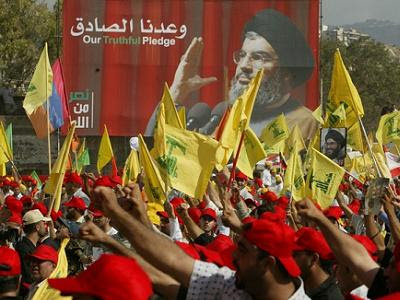
published by Palestine Chronicle, www.palestinechronicle.com
By Ali Alarabi
Last Wednesday prisoners exchange between Hezbollah and Israel in which Israel got the remains of the two soldiers whom Hezbollah snatched from their military jeep in a cross border raid that aimed to eventually swap them with Samir Kuntar, who has been languishing in Israel jails for thirty years. Samir Kuntar, now forty-eight years old, participated in daring military operation of the Palestine Liberation front, whose purpose was, according to reports, to capture Israelis to exchange them with Palestinian prisoners held in Israeli jails.
For most Americans, Israel is a little country, with an image of being an oasis of democracy and sunshine surrounded by sea of bloodthirsty evil Arabs who are out to squeeze life out of it. If they can.
For this sea of Arabs, however, it is the other way around, ever since Jewish immigrants started coming by the boat load to the shores of Yafa and Haifa of what was then Palestine, Israel has been holding the Arabs by the throat dealing them fantastical defeats humiliating them at every round and at every battle.
The exchange of prisoners and soldiers’ remains between Hezbollah and Israel, last Wednesday though not the first, was by all account the first time ever the entire Arab Nation, from the Atlantic ocean to the Arab Gulf felt a sense of vindication and a measure of justice while the Israeli felt the bitter taste of their own medicine, at least for once.
‘Gone are the days of defeats” said the ever popular charismatic Hezbollah leader Hasan Nasrallah to a million plus crowd gathered in Beirut to see the freed prisoners and to tens of millions more of Arabs who watched the beaming Nasrallah hugging=2 0the former prisoners and greet them before he disappeared to give a speech via video conference.
The jubilant Lebanese headed by president Michel Suliman and the entire Lebanese political class gave Samir Kuntar and four other Hezbollah fighters captured by Israel an electrifying heroes welcome.
For the rest of the Arab World, Hezbollah is viewed as a highly efficient organization with a military wing that perhaps, from a military point of view, is the best small fighting force in the world today, can bring them a victory over an enemy that had been the source of their torment for the past 60 years.
What Arabs were witnessing on TV screens, scenes they were unfamiliar with in that for the first time, victory celebrations and the return of their prisoners and the bodies of almost two hundred of former fighters.
In Israel the scene was a stark contrast to the victory parades in Lebanon. Israel felt a rude awakening, perhaps for the first time in which Israel does not hold a victory parade after one of its wars. The Israeli leaders felt a specially humiliating defeat in releasing their longest held prize, Samir Kuntar who was sentenced to multiple life times of 542 years, and whose release required the signature and the pardon of Shimon Perez the president of the country and the father of Israel’s nuclear bomb.
What Hezbollah did was remarkable by all accounts. In the year 2000 it succeeded in driving Israel out of Lebanon; it held several prisoners swaps with Israel that resulted in releasing its prisoners and several hundreds of Palestinian prisoners and withstood a relentless s bo mbardment of Beirut in 2006 to force it to give up its Israeli soldiers.
To put this in perspective; Egypt the regional heavy weight and who signed a peace tre aty with Israel in 1979 did not bother to claim or investigate the fate of thousands of its missing soldiers during the past wars with Israel, some of them are still buried in secret cemeteries called the “cemeteries of numbers” because Israel put only numbers on the graves without names or nationality or any other markers.
Jordan is another country that signed a peace treaty with Israel still has 26 of its citizens and soldiers held prisoners in Israeli jails some of them are Jordanian soldiers who were captured in 1967 war. The Jordanian government is still not making any real efforts to get its prisoners release or claim the bodies of its fallen soldiers. Israel is also holding 11500 Palestinian prisoners, one Saudi man, several Syrians and Yemenis and other Arabs in i ts jails .
Lebanon, for its part, the smallest country bordering Israel, and the weakest one and without a functional army, was able at achieve feats through Hezbollah that no Arab country as powerful as Egypt or as rich as Saudi Arabia was able to achieve.
The message that Hezbollah is sending here is that it liberated its land from the Israeli grip; it got back its prisoners and the remains of their soldiers without dealing directly with Israel or sign a peace treaty with Israel. As far as the other Arab countries that have diplomatic, open and secret ties with Israel, their peace resulted in Israel still occupies Arab lands and continues to hold thousands of Arab prisoners.

